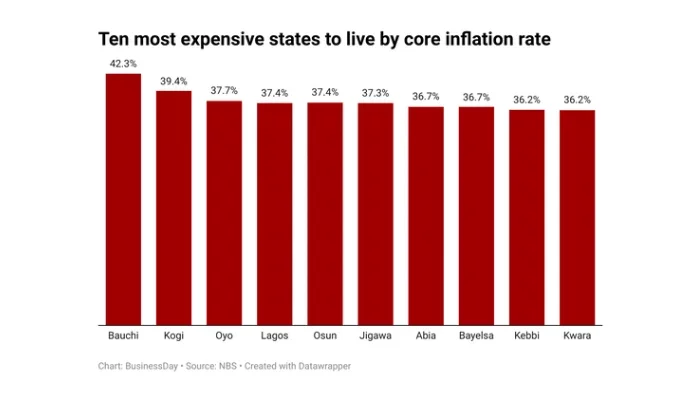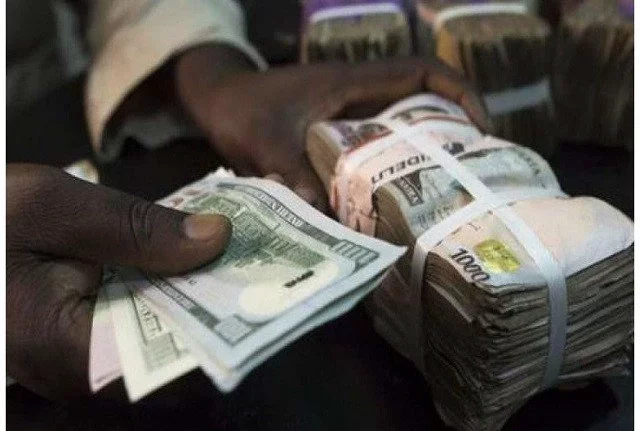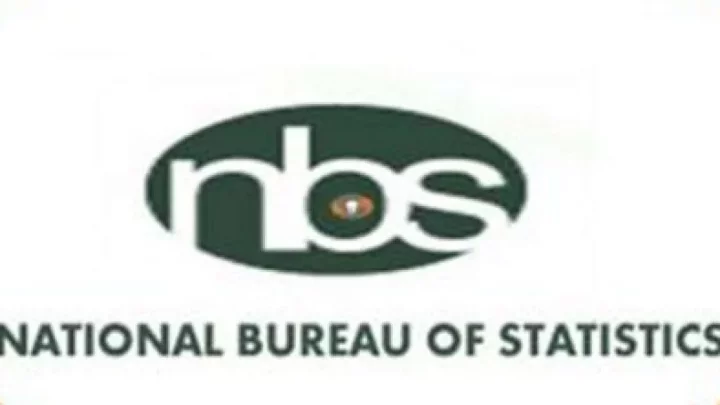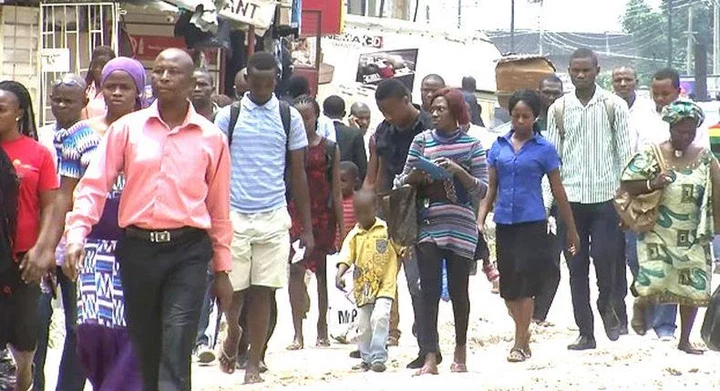
Nigeria's annual inflation rate quickened to 33.95 percent in May 2024 from 33.69 percent in April 2024, for the seventeenth consecutive month, according to the National Bureau of Statistics (NBS).
The NBS report revealed that month-on-month headline inflation slowed to 2.14 percent in May 2024 from 2.29 percent in April 2024, the second broad-based decline since October 2023. It noted that the top five contributors to inflation were food and non-alcoholic beverages at 17.59 percent, housing, water, electricity, gas and other fuel at 5.68 percent, clothing and footwear at 2.60 percent, transport at 2.21 percent and furnishings and household equipment and maintenance at 1.71 percent.
In May 2024, the all-items inflation rate on a year-on-year (y-o-y) basis was highest in Bauchi, Kogi, and Oyo, while Borno, Benue and Delta recorded the slowest rise in headline inflation on a y-o-y basis.
Here are the ten most expensive states to live in, according to the NBS:
Bauchi
Bauchi is the most expensive state in Nigeria, with core inflation of 42.3 percent and food inflation of 34.35 percent. Month-on-month, Bauchi's core inflation stood at 3.75 percent, while food inflation stood at 2.94 percent.
Kogi
In May 2024, Kogi State ranked as the second most expensive state to live in after it recorded a core inflation rate of 39.38 percent and a food inflation rate of 46.32 percent. The state's m-o-m inflation rate stood at 1.75 percent, and food inflation was 1.78 percent.
Oyo
Oyo state recorded a core inflation rate of 37.73 percent, and a food inflation rate of 43.26 percent. Core inflation stood at 1.95 percent m-o-m, while food inflation was 2.78 percent.
Osun
Osun's inflation was 37.44 percent, and food inflation was 44.57 percent. The state recorded a core inflation rate of 3.26 percent m-o-m, while food inflation stood at 2.70 percent.
Lagos
Lagos State has an inflation rate of 37.39 percent and a food inflation rate of 43.02 percent. On a m-o-m basis, Lagos recorded a core inflation rate of 2.13 percent, and food inflation of 2.44 percent.
Jigawa
Jigawa state recorded a core inflation rate of 37.34 percent, while food inflation stood at 42.56 percent. On a m-o-m basis, the state recorded a core inflation rate of 2.44 percent, while food inflation increased to 2.39 percent.
Abia
Abia's core inflation rate in May was 36.74 percent, with food inflation at 44.02 percent. The state's m-o-m inflation rate stood at 1.59 percent, with food inflation at 1.61 percent.
Bayelsa
Bayelsa state recorded a core inflation rate of 36.72 percent, with food inflation at 42.29 percent. The state recorded a m-o-m inflation rate of 3.54 percent, with food inflation at 3.62 percent.
Kebbi
The core inflation rate in Kebbi state stood at 36.21 percent, with food inflation at 42.29 percent. The state recorded a m-o-m inflation rate of 2.39 percent, with food inflation at 2.42 percent.
Kwara
Kwara's core inflation rate was 36.19 percent, and food inflation was 38.51 percent. The state recorded an inflation rate of 1.75 percent m-o-m, and food inflation was 1.78 percent.
















Comments